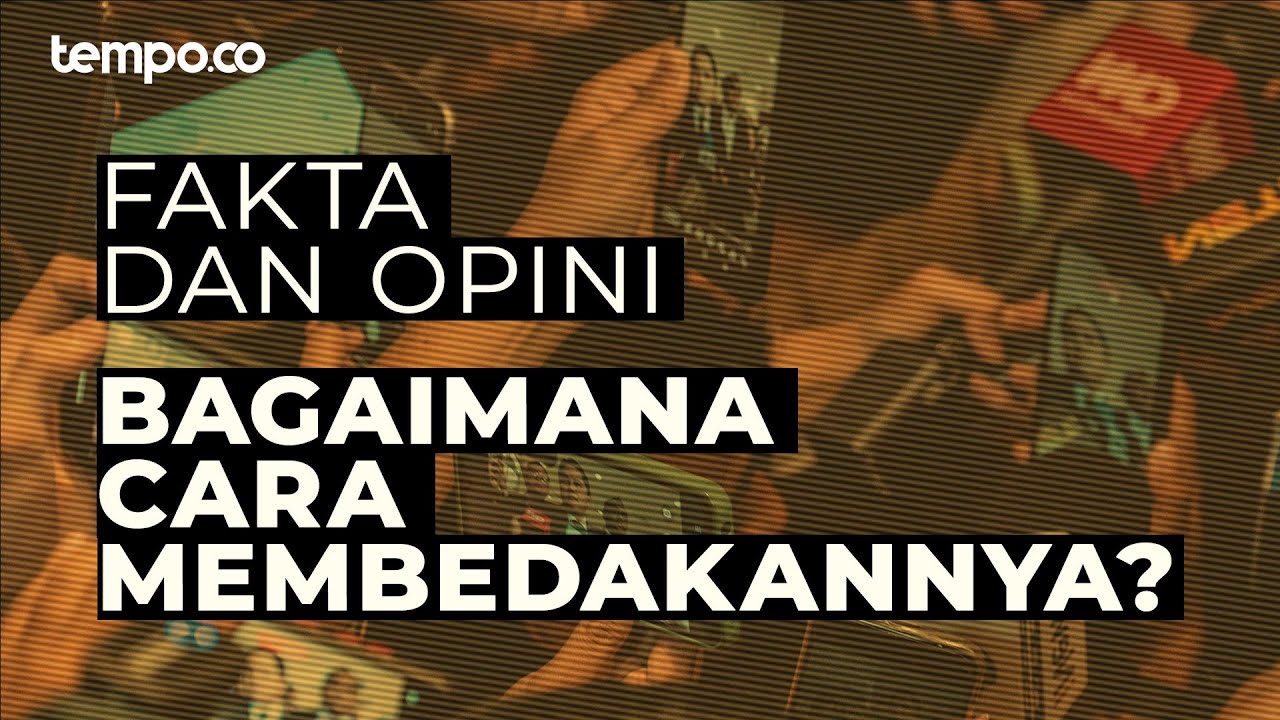Philosophy And . . . Fact and Opinion
Summary
TLDRThe video explores the nuanced distinction between facts and opinions, challenging the common assumption that facts are inherently superior. It examines definitions, highlighting that facts are provable, objective, and evidence-based, while opinions are subjective, disputable, and emotionally influenced. The speaker raises a philosophical paradox: if the distinction itself is treated as factual, is that assumption a fact or an opinion? Using logic and rhetorical analysis, the video invites viewers to critically reflect on how we evaluate claims, the nature of proof, and the often-overlooked complexity behind the simple labels of 'fact' and 'opinion.'
Takeaways
- 🧐 Facts and opinions are commonly distinguished, with facts considered provable and opinions considered subjective.
- 📚 Definitions from sources like the Oxford American Dictionary describe facts as indisputable and opinions as disputable.
- 🔍 Facts are evidence-based, objective, public, and obligatory to believe, whereas opinions are emotion-driven, subjective, private, and permissible.
- 🤔 The distinction between fact and opinion is widely accepted but is itself open to philosophical scrutiny.
- ⚖️ Definitions alone cannot prove the distinction between fact and opinion; relying on them is circular reasoning.
- 💡 Rhetorical strategies often dismiss others’ views as 'just an opinion,' but this depends on accepting the fact/opinion distinction.
- ❓ If the fact/opinion distinction is merely an opinion, then dismissing other views as opinion loses rhetorical force.
- 🧠 The script encourages viewers to critically examine foundational assumptions rather than taking distinctions for granted.
- -
- 📣 Philosophical inquiry asks whether we can justify that the distinction between fact and opinion is factual, rather than assumed.
- 💬 Viewers are invited to reflect on and comment their reasoning, highlighting that this question is not trivial but fundamental.
- 🎯 The discussion emphasizes meta-thinking: analyzing the nature and justification of the tools we use to understand knowledge itself.
Q & A
What is the main distinction between facts and opinions as presented in the script?
-The script outlines that facts are provable, objective, and indisputable, while opinions are subjective, disputable, and based on personal judgment or emotion.
Why are facts generally considered superior to opinions?
-Facts are considered superior because they are grounded in evidence, verifiable by experts, and remain consistent over time, while opinions are subjective and open to debate.
How does the script challenge the idea that facts are always better than opinions?
-The script questions whether the distinction between facts and opinions itself is a fact or an opinion, suggesting that the line between them may not be as clear-cut as we assume.
What is the rhetorical move mentioned in the script, and how does it relate to the distinction between facts and opinions?
-The rhetorical move involves dismissing someone else's judgment as 'just their opinion' in order to undermine its validity. The script argues that if the distinction between facts and opinions is merely an opinion, then this rhetorical strategy loses its power.
What role do definitions play in the distinction between facts and opinions in the script?
-Definitions are used to establish the boundary between facts and opinions, but the script points out that simply defining something does not serve as proof, as the distinction itself may also be questioned.
Why does the script suggest that opinions should not be disregarded outright?
-The script acknowledges that while opinions are subjective, they are not inherently invalid. It suggests that opinions, especially in philosophy, are valuable for exploring different perspectives, even if they cannot be objectively proven.
What example does the script give to illustrate the flawed logic of proving a statement solely by definition?
-The script uses the ridiculous example of defining the Sun as 'made of smelly green mustard' to demonstrate that simply restating a claim does not constitute proof.
How does the script position philosophy in relation to facts and opinions?
-The script points out that philosophy is often dismissed as being based solely on opinions, but it questions whether this dismissal is justified, given the complexity of distinguishing facts from opinions.
What is the underlying question the script poses about the distinction between facts and opinions?
-The central question the script poses is whether the distinction between facts and opinions is itself a fact or an opinion, inviting the audience to reflect on the nature of the distinction.
How does the script engage the audience in the debate about facts and opinions?
-The script invites the audience to reflect on the question and provide their own answers in the comment section, encouraging them to justify their position on whether the distinction is a fact or an opinion.
Outlines

このセクションは有料ユーザー限定です。 アクセスするには、アップグレードをお願いします。
今すぐアップグレードMindmap

このセクションは有料ユーザー限定です。 アクセスするには、アップグレードをお願いします。
今すぐアップグレードKeywords

このセクションは有料ユーザー限定です。 アクセスするには、アップグレードをお願いします。
今すぐアップグレードHighlights

このセクションは有料ユーザー限定です。 アクセスするには、アップグレードをお願いします。
今すぐアップグレードTranscripts

このセクションは有料ユーザー限定です。 アクセスするには、アップグレードをお願いします。
今すぐアップグレード関連動画をさらに表示
5.0 / 5 (0 votes)






